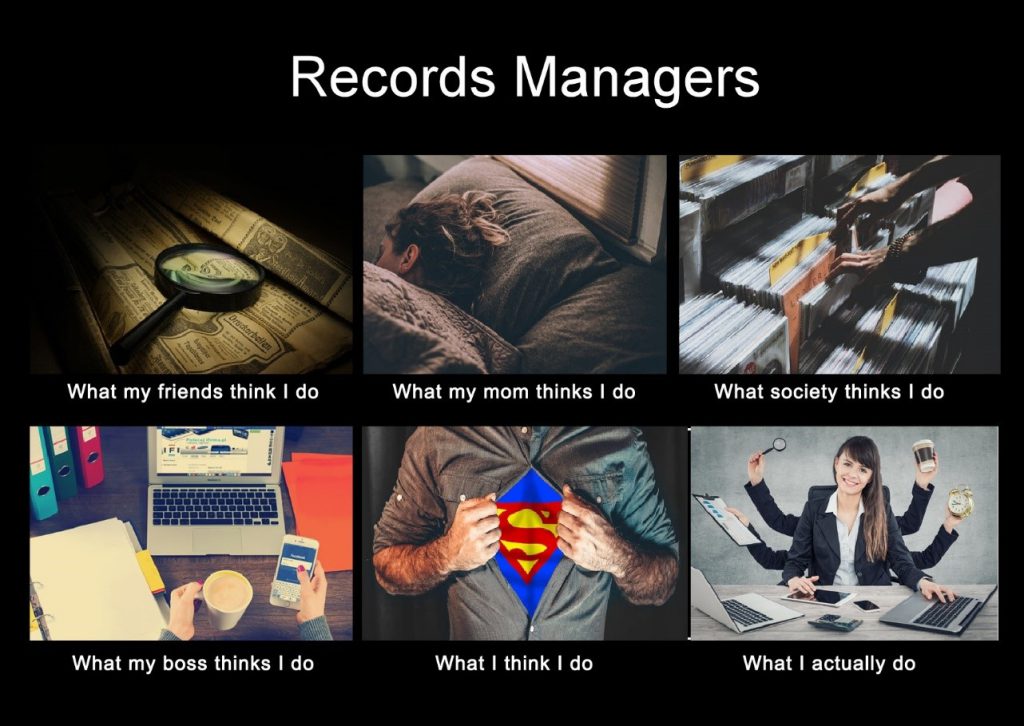Reading Time: 2 minutes 30 seconds
If you’re a records manager, how do you explain your profession to the curious? If pressed for why you became a records manager, do you have a go-to answer? If you’re like many records managers, you probably have a unique background, are impeccably organized, and most likely take your job pretty seriously. Like your records manager peers, you might sometimes feel that people think you’re a glorified librarian, but you know that’s not even close to the case. Librarians have their own wonderfully complex careers, but they can’t be easily compared to records management. With these questions and misconceptions in mind, let’s take a look at what the job might look like and discuss potential educational paths.

Job Description
The role of a records manager varies vastly between organizations. Typically, a records manager, at the most basic level, is responsible for classifying an organization’s records. Of course, there is much more to it than that. Defining records, protecting your organization’s information, and ensuring your practices are compliant with legislation are just a few things you probably do on a daily basis.
Being a records manager requires you to do things you might not even consciously define as part of the job. For example, you need to encourage your colleagues to be mindful of the way they work with records, which can be a challenge on its own. You also have to think about what a record is and communicate that. Sounds simple enough, but too often, you’ll find people don’t realize emails, text messages, pictures, and social media posts can be records depending on the circumstances. That’s a lot of critical thinking. Critical thinking is something all records managers have in common, no matter what their specific role in their organization.
Education
The truth is, there are many avenues to become a records manager. Although there aren’t many university-level educational programs for records managers, they do exist, such as the Master of Archives and Records Administration degree offered by San Jose State University School of Information. Additionally, many history programs on campuses around the U.S. offer classes in archives and records management. Even if you don’t take advantage of a university education in records management, there is no shortage of options to expand your knowledge.
Many records manager is find themselves in the role after majoring in any number of other educational tracts. Once you’re in the records manager lane, you’re in good company. You’ll be able to take advantage of professional organizations that provide conferences and continued education, such as AIIM and ARMA. You can also benefit from available programs, such as the Institute of Certified Records Manager certification that allow you to become a Certified Records Manager.
Conclusion
Records management is sometimes misunderstood, and maybe that’s because it evades a strict definition. Ultimately, all records managers are critical thinkers and valuable members of the organizations that employ them. Concerned with classifying, managing, and protecting information, compliance is a constant priority for these folks. Records managers around the world help ensure records are easy to find, retrieve, and dispose of when the time comes, saving their employers potentially millions of dollars in sanctions they might face otherwise. They really are superheroes!
Disclaimer: The purpose of this post is to provide general education on Information Governance topics. The statements are informational only and do not constitute legal advice. If you have specific questions regarding the application of the law to your business activities, you should seek the advice of your legal counsel.

